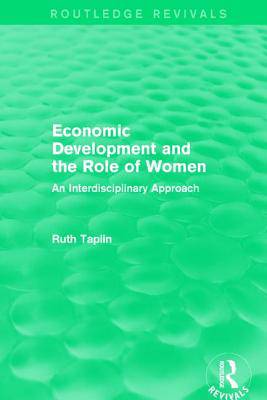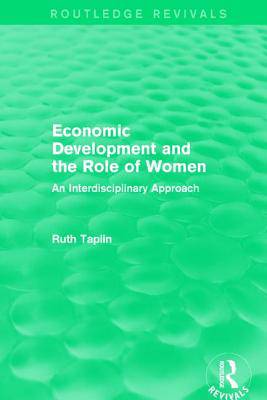
- Retrait gratuit dans votre magasin Club
- 7.000.000 titres dans notre catalogue
- Payer en toute sécurité
- Toujours un magasin près de chez vous
- Retrait gratuit dans votre magasin Club
- 7.000.0000 titres dans notre catalogue
- Payer en toute sécurité
- Toujours un magasin près de chez vous
Routledge Revivals: Economic Development and the Role of Women (1989)
An Interdisciplinary Approach
Ruth TaplinDescription
First published in 1989, this book provides a macro-micro approach to economic development -- taking account of multi-level linkages, both inter and intra, that had been missed by previous analyses. The author argues that these linkages demonstrate that social and economic change may occur from the "bottom up" household/family level and not just from the "top down" economic order level -- using women as a vehicle to illustrate this. In the first section, the expansive body of development literature is summarised and critically reviewed -- isolating the primary strengths and weaknesses. Case studies of Malaysia, the Chinese Commune and the Israeli Kibbutz demonstrate that a theory which combines the analysis of the organisation of work, kinship and ethnicity can accommodate the experience of women in an integrated manner that traditional development theory has failed to achieve.
Spécifications
Parties prenantes
- Auteur(s) :
- Editeur:
Contenu
- Nombre de pages :
- 129
- Langue:
- Anglais
Caractéristiques
- EAN:
- 9781138230842
- Date de parution :
- 31-05-18
- Format:
- Livre broché
- Format numérique:
- Trade paperback (VS)
- Dimensions :
- 156 mm x 233 mm
- Poids :
- 259 g

Les avis
Nous publions uniquement les avis qui respectent les conditions requises. Consultez nos conditions pour les avis.






